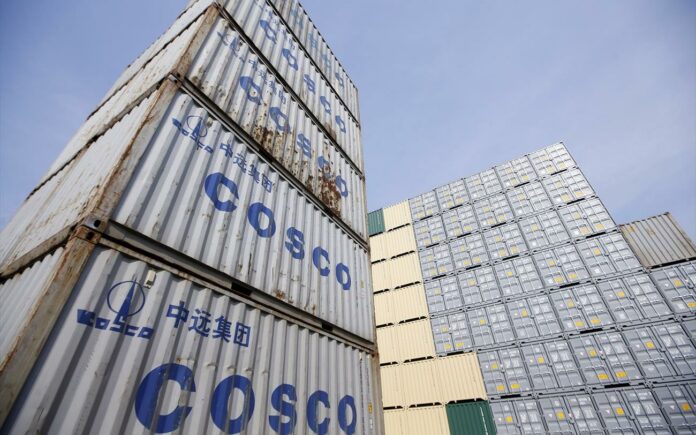By V. Kostoulas
[email protected]
The numbers are staggering: In 2009 China exported, in a span of six hours, the total export output that it had recorded in all of 1979! In 2025, moreover, its GDP is projected to reach 30 trillion USD.
For crisis-battered Greece, China’s unofficial 21st century mantra of “growth and expansion” potentially means billions of euros in direct Chinese investment in the east Mediterranean country and equally promising bilateral trade ties.
In 2016 Greek exports to China reached 328 million euros, whereas Chinese exports to Greece – as one would expect – were almost nine times higher, reaching 2.887 billion euros.
Prospects for an increase in Greek exports, according to local analysts, mainly lie in alleviating trade obstacles for agricultural products and maritime shipping equipment.
Yet another “major wager” for the Greek economy, and specifically by the all-important tourism sector, is to continue to attract increasingly higher numbers of Chinese visitors to the country on an annual basis.
Chinese tourists abroad currently number around 140 million, of which only 18 million visit Europe. However, that figure is expected to increase on an annual basis. Total travel expenditures by Chinese tourists, meanwhile, reached a stratospheric 216 billion USD, with Americans, by comparison, spending 122 billion USD and Germans 81 billion USD.
As far as Greece is concerned, the number of Chinese visitors is estimated to reach 200,000 in 2018, a figure that is double the number of visas issued for direct travel from China to Greece, meaning that the other half of Chinese visitors arrive from another Schengen Pact member-state.
Nevertheless, when one thinks of Greek-Chinese economic ties, the pre-eminent “success story” so far has been Shanghai-based Cosco’s assumption of the Piraeus Port Authority (OLP), following its highest bid in an international tender for 66 percent of the latter’s shares and management of Greece’s biggest and busiest port.
For the state-owned shipping giant and port operator, assuming the port of Piraeus has little to do with Greece’s domestic market and everything to do with location.
With a total investment of between 1.5 to two billion euros, Cosco has acquired a container transport capacity of around four million units per year.
Speaking at an ekyklos workshop in Athens last week, Plamen Tonchev, the head of the Asian studies department at the Athens-based Institute of International Economic Relations (IDOS), said this is particularly lucrative for the Chinese side.
In light of the Cosco deal, he said future Greek governments must negotiate better deals for similar investments, ones that entail a major strategic outlook and prospect.














